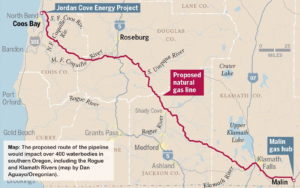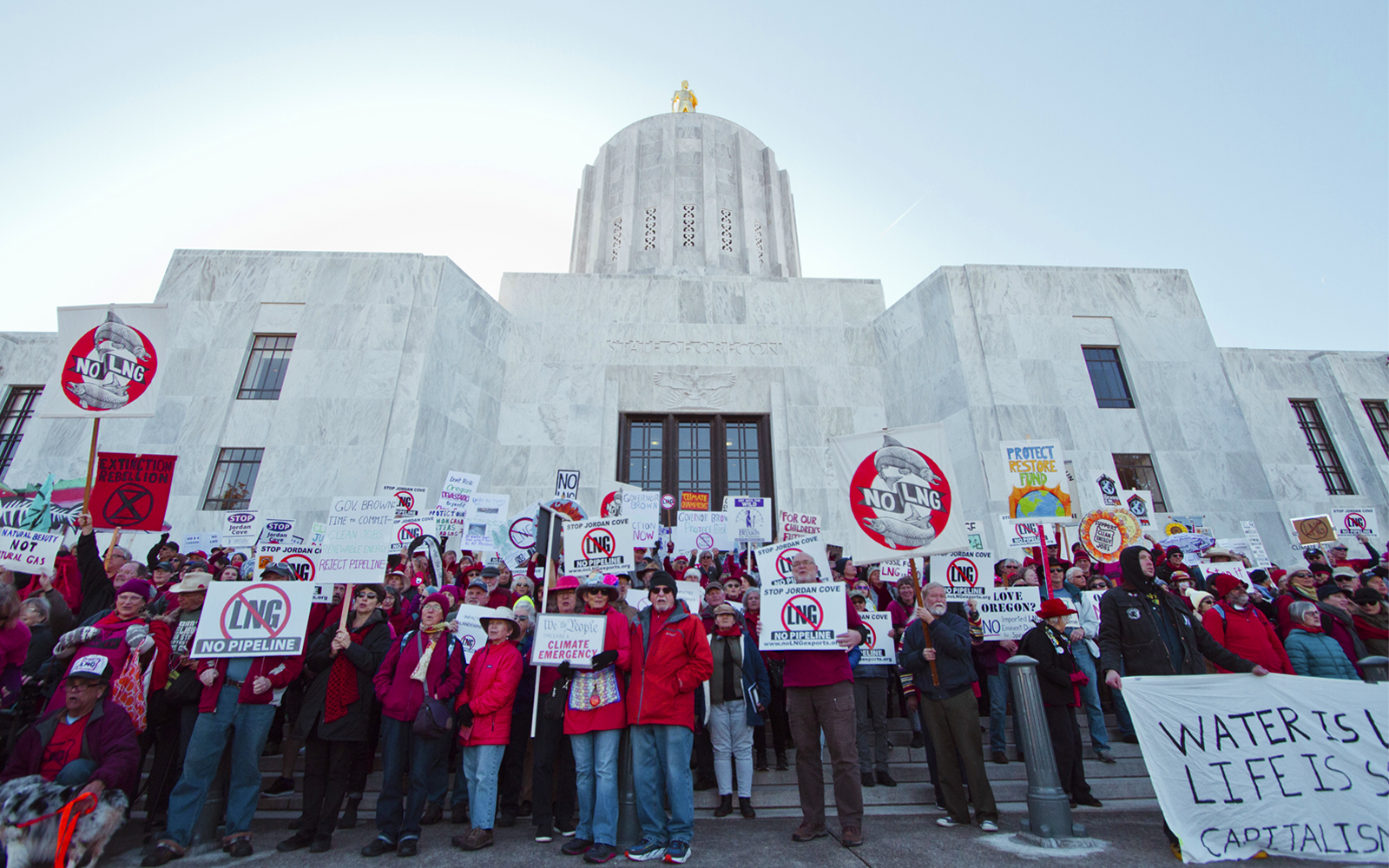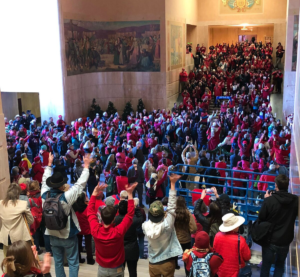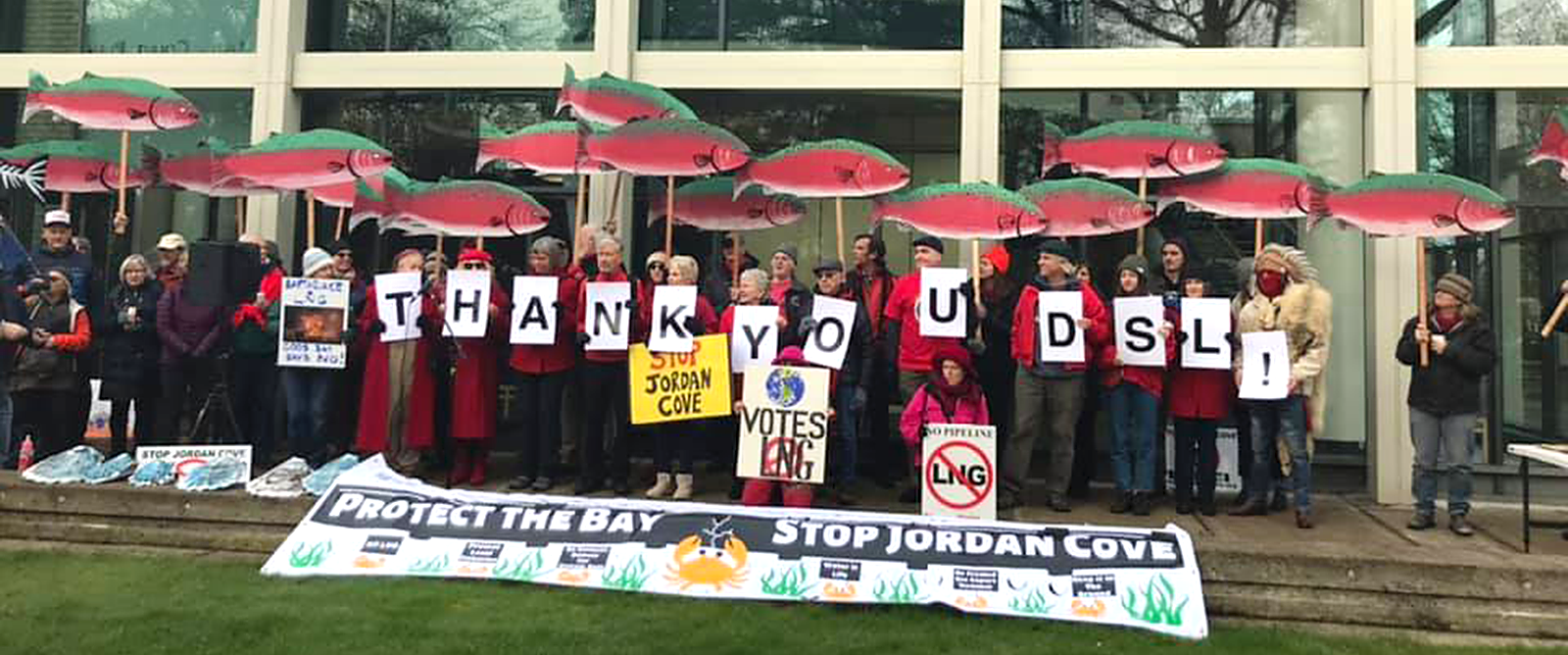One day after the State of Oregon denied another key permit for Jordan Cove LNG, the Federal Energy Regulatory Commission votes 2-1 to delay approval process!
FEBRUARY 20, 2020 | On the heals of yesterday’s State of Oregon denial of yet another necessary permit for the Jordan Cove LNG Project, the Federal Energy Regulatory Commission (FERC) this morning voted 2-1 to delay the Trump administration’s approval process.

Map showing the route of the proposed Jordan Cove LNG/Fracked Gas Pipeline (by Dan Aguayo/The Oregonian).
This is another significant blow to the Canadian energy company, Pembina, which is proposing to build a 230-mile feeder pipeline through southern Oregon in order to move fracked gas to Coos Bay, where it would be shipped overseas to be burned.
In their denial, the Oregon Department of Land Conservation and Development (DLCD) determined that the impacts of Jordan Cove LNG would be too great on Oregon’s coastal communities and environment.
After 15 years, the corporations behind the Jordan Cove LNG Project have failed to qualify for multiple necessary state and federal permits to build the 230-mile pipeline and associated LNG export terminal in Coos Bay. If built, the Jordan Cove Project would threaten over 400 waterways and impact drinking water for thousands of Oregonians. Construction of the pipeline would require a 95-foot clearcut along the entire pipeline length, destroying healthy public lands, harming tribal resources, and trampling private landowner rights.
In May 2019, the Oregon Department of Environmental Quality denied a key Clean Water Act permit because Pembina could not demonstrate the project would meet water quality standards. In January 2020, the Oregon Department of State Lands denied Pembina’s request for an extension on a necessary dredging permit due to the corporation not providing requested information about project impacts.
While it still remains unclear how the Trump administration’s Federal Energy Regulatory Commission will ultimately rule, it is clear the state of Oregon continues to stand up for the people, clean water, wildlands, species, and climate, which would be profoundly impacted by this reckless fossil fuel export scheme.
Thank you for staying active in this fight!
Your voice has helped our diverse and potent coalition get this far, and with your continued advocacy, we can win.
Jordan Cove LNG Project Permitting Timeline
- 2016: FERC denied this project, then lead by Alberta-based energy company Veresen, because Veresen had not demonstrated the need for the project, and that the benefits from the project would not outweigh the harm done to individual landowners to justify the use of eminent domain.
- May 6, 2019: Oregon Department of Environmental Quality (DEQ) delivered a major blow to the Jordan Cove LNG Project by denying the Clean Water Act Section 401 permit because Pembina could not demonstrate that they would meet Oregon’s clean water standards.
- January 21, 2020: Oregon Department of State Lands (DSL) rejected a request from Pembina to extend the permitting deadline for the project.
- January 24, 2020: Anticipating a permit denial, Pembina withdrew its state lands permit application entirely.
- February 19, 2020: Oregon Department of Land Conservation and Development (DLCD) denied the Coastal Zone Management Act Consistency Certification, marking the third key state permit Pembina failed to obtain.
- February 20, 2020: FERC did not issue an approval for the Jordan Cove Project, citing a need to understand Oregon’s denial the night before; they provided no indication of when it would revisit Pembina’s application.



